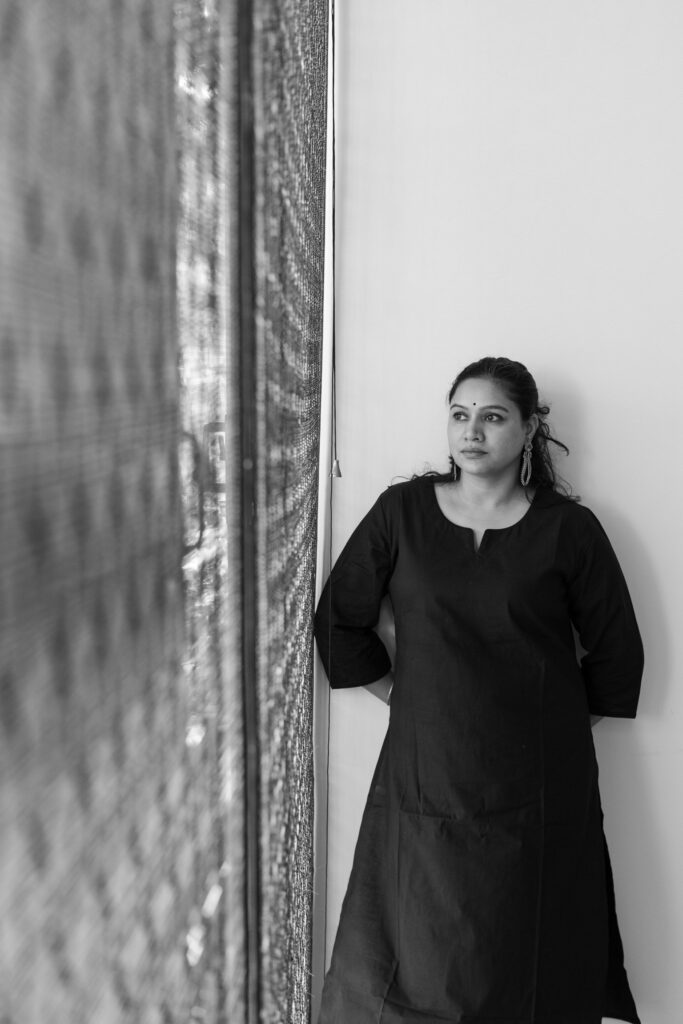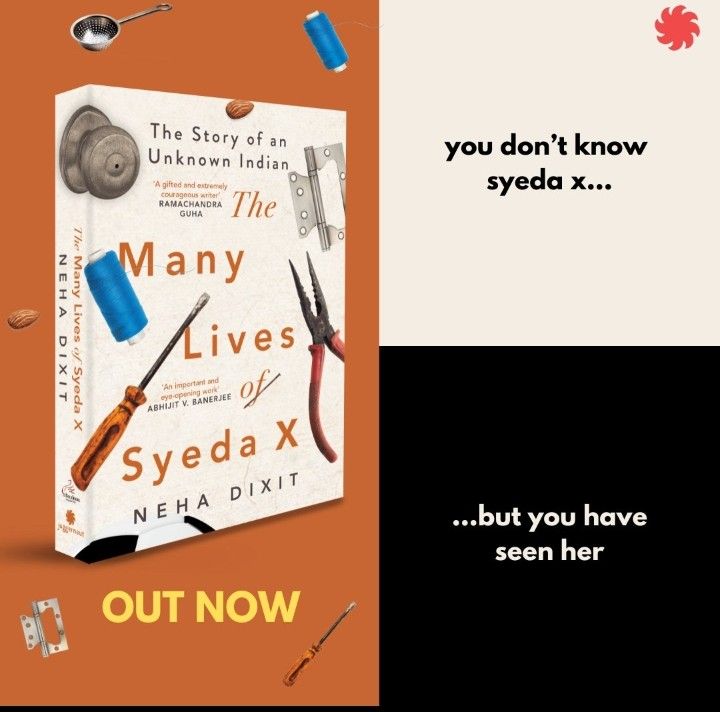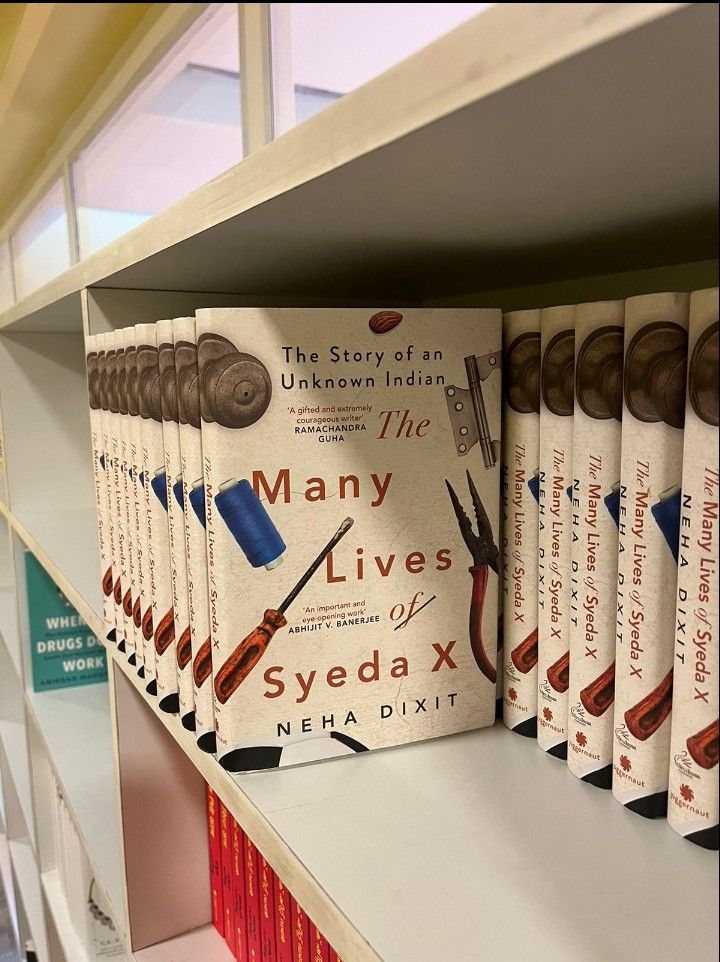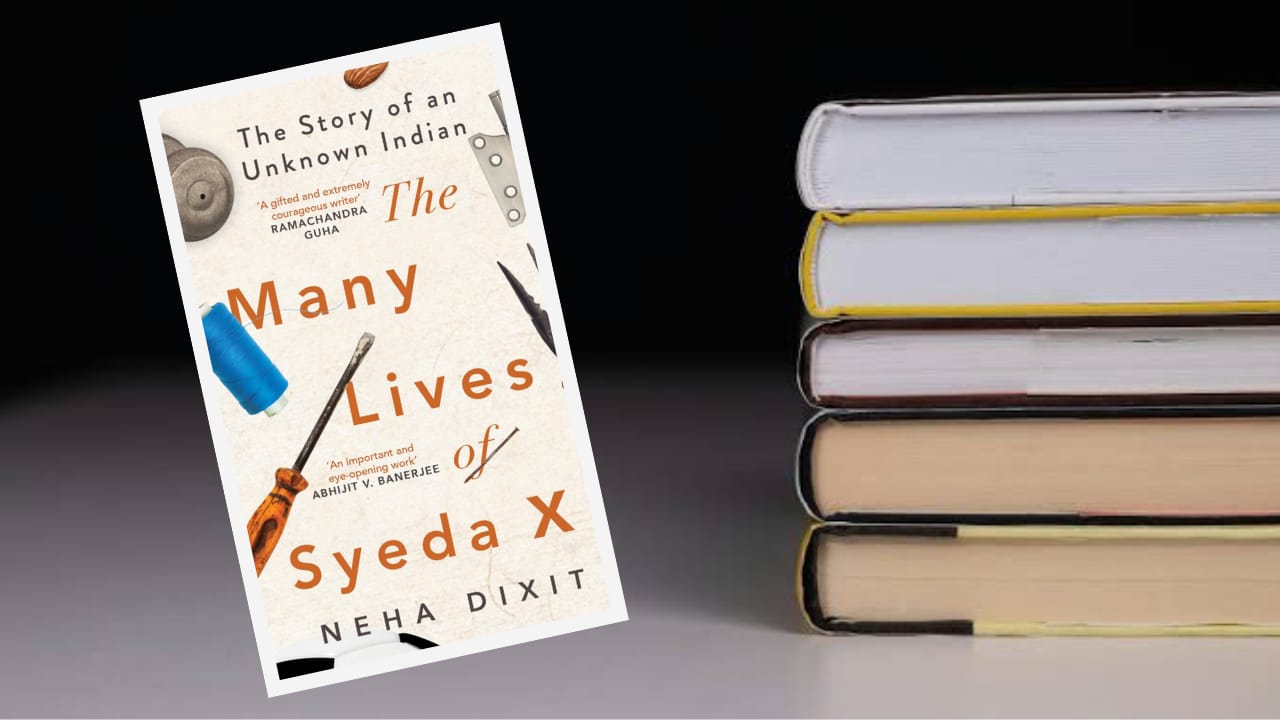“Kaun hain ye log (Who are these people)? Kahan se aate hain ye (Where do they come from)?” asks Jagdish Tyagi, Jolly, an advocate, in his concluding argument for prosecution in a case where a billionaire’s son had mowed down a few people sleeping on a pavement. This is a scene is from the “Jolly LLB” movie, released in 2013. The film doesn’t answer this question. As a viewer, I too could not deduce a definitive answer to this poignant query raised in the movie. But recently I read journalist Neha Dixit’s very first book “The Many Lives of Syeda X” ( Juggernaut Publishers , 2024 ) and was able to sense what the answer could be to Jolly LLB’s question.

Neha Dixit is an independent journalist, belonging to an increasingly dwindling species of journalists who keep their ear to the ground, pursue and publish people oriented stories and boldly face virulent persecution that follows from the powers that be. In other words a hero of courage and conviction.
In the words of senior journalist and writer Sucheta Dalal the work of a journalist is “…investigating, publishing reports – feeling the heat from big business – and then standing by what you write or fighting for it!”, which Neha Dixit exemplifies.
Neha Dixit’s journalism has very many instances of the kind of reporting and consequent persecution mentioned by Sucheta Dalal. She wrote a a series of stories on the Rashtriya Swayamsevak Sangh (RSS) in 2016 and, she is still facing court cases, has been stalked, and have received rape and death threats.
Since 2014, when a substantially large percentage of journalists in India, more so in the Hindi-speaking States, actively sought comfort, security, and a hassle-free life opting out of the risks and tribulations that journalists often face after doing stories disconcerting to the government or establishment, Neha decided to pursue independent journalism, giving media space to the human voices who normally do not find figure in the mainstream media.
“The Many Lives of Syeda X” is an expansive book that is the result of many years of painstaking research on the ground. Syeda is a Muslim woman born in Varanasi in a weaving family who got married at a young age. Syeda was born in the 70s and by the time she became an adult, India’s economic horizons had witnessed the dawn of economic liberalization. The book traces Syeda’s life and journey over the years. Syeda’s life has strong resemblances to the travails of 43.99 crore people employed in informal employment in India. Herein lies the importance of this book.

Syeda, barely educated with little schooling, married at 15 to young Akmal, a skillful weaver in his teens. Still in her early 20s, she leaves Varanasi for Delhi with her husband and three children, two sons and a daughter. Akmal’s family had migrated from a neighbouring district of Varanasi to make handloom sarees in the temple town, popularly known as “Banarasi sarees”.
The family lost everything in a riot that followed the 1992 demolition of the Babri Masjid. Devoid of any employment opportunity and facing the district administration’s high-handedness, Akmal, a skillful artisan who, like Syeda, had little formal education, decided to leave Varanasi for good for a more peaceful existence. Syeda, Akmal, and her three children landed in Delhi to become the people Jolly LLB referred to in his concluding argument in the movie mentioned earlier.
Slum-like settlements are a feature of every big city in India. Alongside a railway line, under big flyovers, or the sides of large-open drainage flowing through a metro city, one can easily spot a dense row of crudely, frugally built housing settlements, housing people employed as informal workers that make a city function. They work as housemaids, manual labourers who deliver heavy loads to small godowns or warehouses, workers who make parts of small industries, categorized as MSME, or invisible workforce of the global retailing giants, selling expensive, branded sneakers or clothes. If you are also ignorant about or oblivious to the aspirations, ambitions, hardships, or any other aspect of their lives, look no further than this excellent book.
Neha’s writing is lucid. Her writing holds attention and engages. Events are known and relatable. You would have met people who closely resemble the book’s characters. You will feel connected to the stories because they are about people and their lives that we have seen or have come across from time to time, but have not realised the exact nature of their existence.

The Baranasi in me, the most vocal and identifiable part of me, waited for Syeda to win and become a hero. Had this been fiction, that could have been a natural ending for the book. But, we live in a cruel world where we struggle every day to prove our worth, and strive not to be judged by our mistakes, and to be accepted with all our imperfections as a human being, even if for a little while.
Towards the end, like everyone else, we also see Neha too turning away from Syeda. It ached my heart to see Syeda, a fellow Banarasi, treated this way. But, overall “ The Many Lives of Syeda X” is an emphatic statement of empathy to Syeda and her ilk and a salutation for her resolve, selflessness, and commitment. It is a book that should not be missed, for it gives an opportunity to understand and identify with the lives of the poor and the marginalised in our country.








